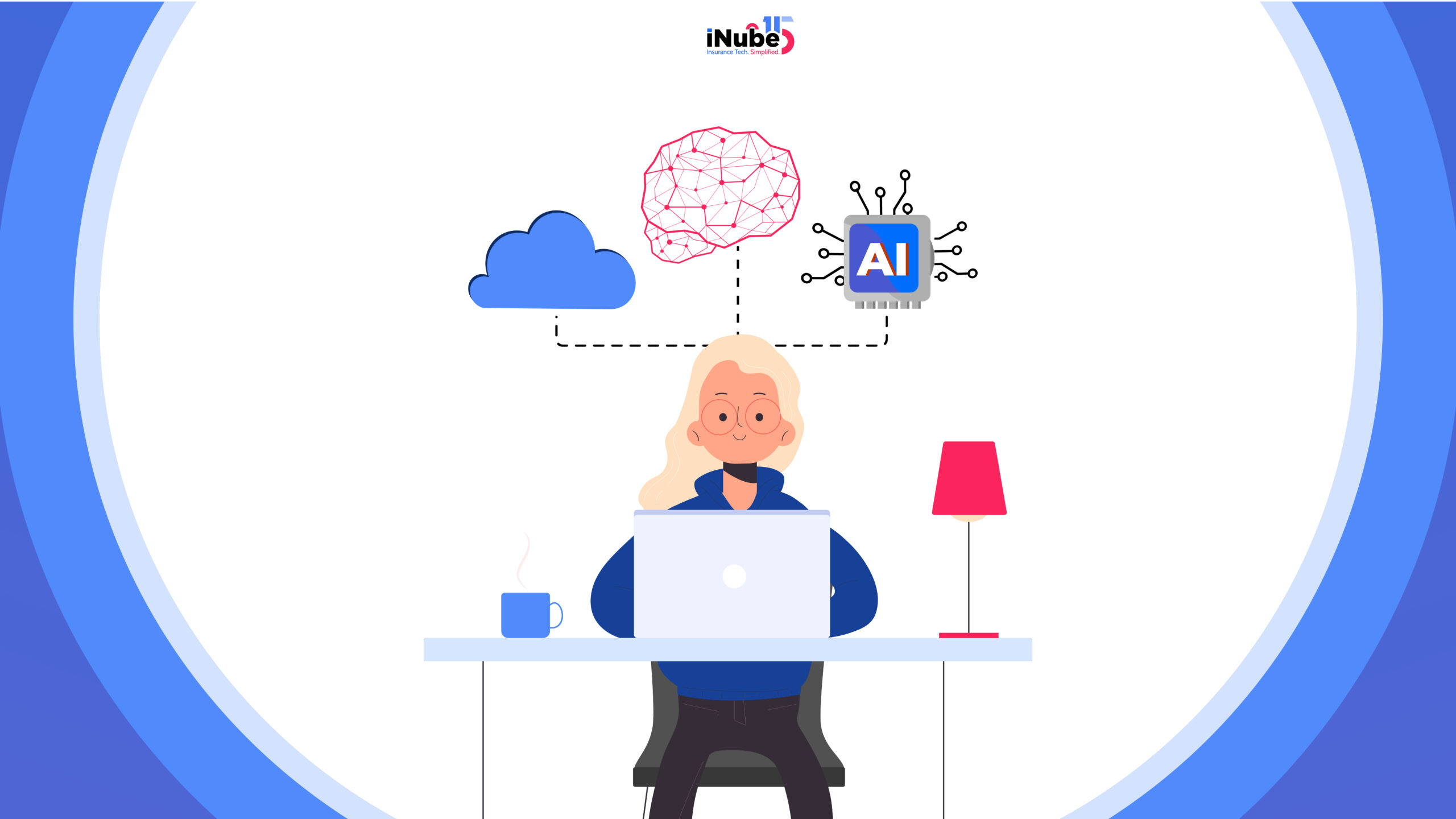Today, the insurance agencies are experiencing a seismic shift where, even after decades of relying upon the traditional processes and the face-to-face interactions, the insurance agencies are discovering that Artificial Intelligence-powered insurance solutions are not just an optional upgrade; instead, they are essentially becoming the survival tools in an increasingly competitive landscape.
Well, if you are an insurance professional who is wondering whether AI will be replacing you or will be enhancing your capabilities, then you might have to get clarity on this question- AI is not here to replace your job; instead, transform it.
Dive deeper to decode more.
A Peek at the Reality of Digital Transformation in Insurance
The digital transformation in insurance is not a future concept anymore; instead, it’s reshaping the insurance agencies in 2025. In one of the recent studies by McKinsey, it was highlighted that most of the insurance agents spend at least 40-60% of their time on administrative tasks, leaving a limited capacity for meaningful customer engagement.
While administrative tasks pose a significant threat to the part of the insurance agent, they can be a significant roadblock for the policyholders as well. The policyholders end up waiting for days to get quotes, weeks for policy changes, and sometimes even months for claims resolution.
However, AI is rapidly transforming this model, and what once took hours is now just minutes. What essentially requires multiple phone calls and emails is now happening automatically. What essentially felt impersonal and bureaucratic is now becoming increasingly human-centered.
The AI Transformation in the Insurance Agencies’ Operations
The way AI is reshaping the insurance agencies’ operations is proving to be a truly definitive move. Here’s a brief look at the way AI is rewriting the Insurance agency operations:
Automation of Repetitive Tasks
One of the key tasks of AI is automating the otherwise time-consuming and repetitive tasks. This includes policy data entry, claims verification, and document processing, and has been freeing up the insurance agents significantly to focus on strategic and client-facing work.
Reducing Human Error
One of the other key tasks of the AI algorithms is that they significantly help to reduce human error, speed up underwriting, and ensure compliance. This helps to make operations more efficient.
The key insight that the insurance agencies need to know is that AI will not be replacing them. Instead, empower them to deliver high-value services.
Reimagining the Future of Insurance Agencies with Augmented Intelligence
As the future of insurance embraces the vast capabilities of AI, human expertise and AI algorithms will be seamlessly blended:
AI won’t Replace Agents
One of the keyways by which augmented intelligence will be helping the insurers is that they will not be replacing the insurance agents. Instead, it will be augmenting decision-making, offering insights that humans alone will not be able to achieve.
Faster Services
Another one of the ways in which augmented intelligence will be aiding the insurers is by speeding up the services, such as offering instant quotes, personalized coverage, proactive coverage, and superior customer experience.
Combining Human Empathy and AI
Another way Augmented Intelligence will help insurance agents is by seamlessly blending human empathy with its code.
What’s Next?
The AI-centric transformation is the reality, and the question here is not whether the insurance agencies will be adopting Artificial Intelligence insurance solutions; instead, it’s whether you will proactively do it or wait until the competitors force your hand. The silver lining here is that it’s never too late, and the technology is more accessible and affordable than ever. Additionally, the training sources are abundant, and the competitive advantage is quite real.
McKinsey has recently warned about the insurers being stuck in “pilot purgatory,” which often lacks a bold, enterprise-wide AI strategy with measurable financial outcomes that are needed to shift out of the AI inertia. They essentially focus on the narrow use cases instead of driving the domain-wide transformation, and the risk of stagnation as the AI-native competitors will be pulling further ahead.
What Insurance Agencies Need to Know?
For the insurance agencies considering AI adoption, the learning curve essentially exists but also remains manageable. Most insurance agencies still start with a simple chatbot or an AI-powered CRM system. To ensure a smooth transition, training is extremely important. In one of the recent reports by McKinsey, it was highlighted that successful AI adoption essentially depends upon shifting the mindset, and also on the insurers viewing AI assistants as core to their roles.
Here, the data quality matters equally, and AI systems perform only as well as the data on which they are trained. Finally, the investment requirements are quite real but also scalable, for every amount that is spent on developing the AI solutions, the insurance agencies should be able to budget another amount for user adoption and also change management.
The future of insurance is not just human or AI. Instead, it’s human and AI working together to serve the insurers and the policyholders better than either could alone.

Archismita Mukherjee
Insurance Content Analyst


